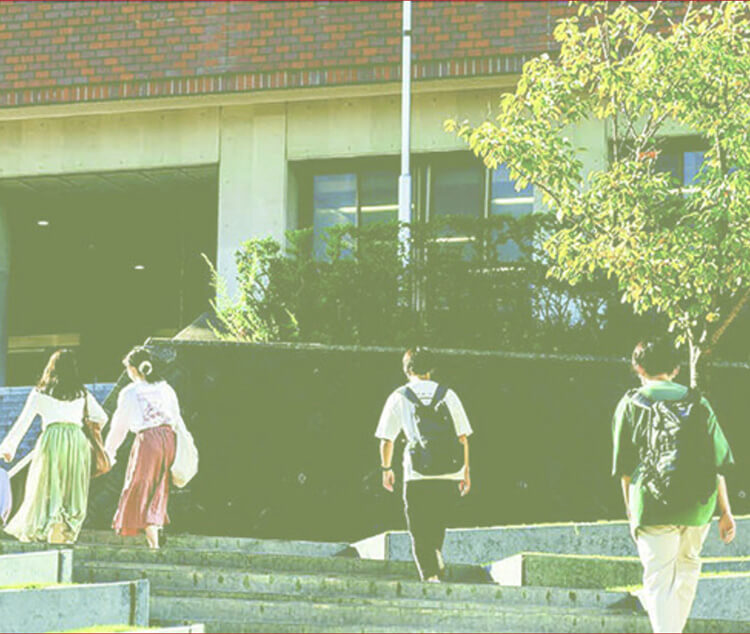Department of Childhood Education
Faculty of Human SciencesFor those who wish to enroll in 2026
For information on the 2026 curriculum, please see the latest university guide below.
Department News
What is Department of Childhood Education?
Supporting children's growth means nurturing Japan's future.
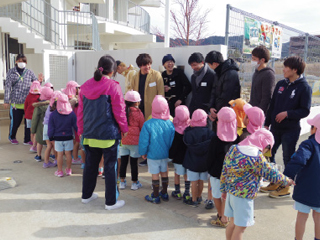
As technology advances and values become more diverse, the environment in which children grow up is also constantly changing, creating a need for professionals who can properly engage with children and provide attentive, thoughtful support to parents.
In this department, we train people who can solve various problems in early childhood education and childcare, as well as respond appropriately to children who require special support. In addition, through four years of in-depth learning, we train people who can acquire many qualifications and become professional leaders.
Admission Policy
- 01
- People who are motivated to acquire knowledge and skills to support the healthy mental and physical development of children
- 02
- Those who have acquired the communication skills essential for the field of education and childcare
- 03
- People who are eager to acquire culture and skills related to childcare
Characteristics of the Department
01Various qualifications can be acquired
In addition to the kindergarten teacher's license and childcare worker qualification, you can also obtain a special needs school teacher's license, a school psychologist's license, and a childcare psychologist's license (type 2). You can also obtain an elementary school teacher's license by taking correspondence courses (additional fees required).
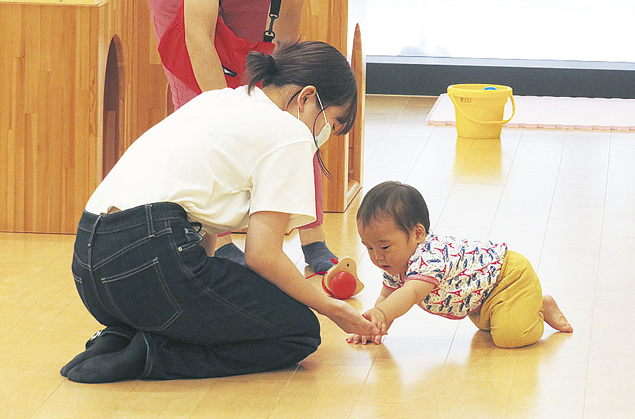
02 Stimulating research exchanges among departments
The "Child Education Study Group" is held regularly, consisting of faculty members, assistants, and staff from the Childcare Support Office. Active research exchanges are conducted to apply research results to educational practice.
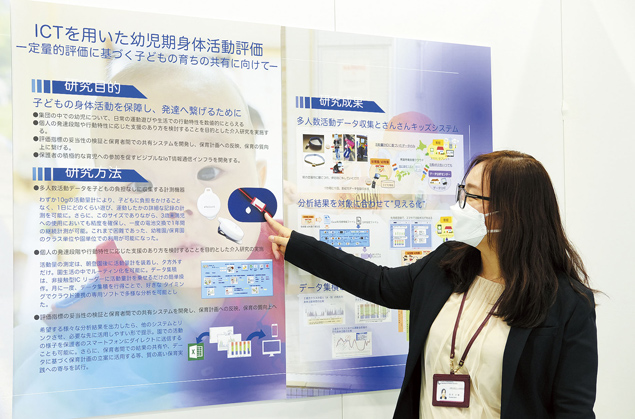
03 Activities to support child-rearing throughout the community
A "Childcare Support Office" operated by students, faculty, and staff of the department has been established on campus. It contributes to childcare support in the local community by providing opportunities for parent-child interaction, holding childcare classes, and responding to childcare consultations.
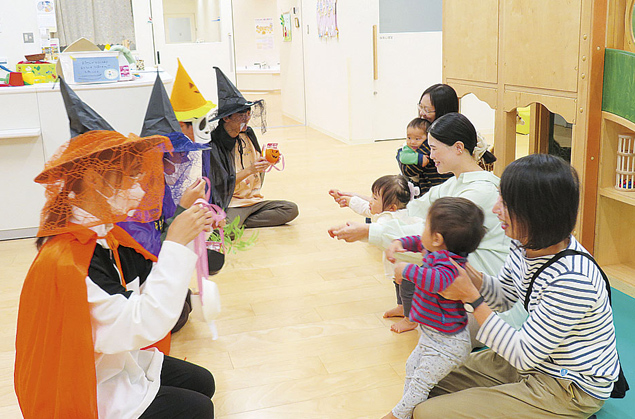
Advanced Program
A motivational support program!
High-level childcare workers with four licenses and qualifications.
Teacher Training Programs
We train high-level childcare workers and special needs school teachers who have four licenses and qualifications: a kindergarten teacher's license, a special needs school teacher's license, a childcare worker's license, and a primary school teacher's license. By acquiring many licenses and qualifications, students will be able to acquire expertise that can respond to modern educational needs, and will be able to take up positions equivalent to public servants such as public education officials and public corporations. Our department aims to increase the number of students who take up these jobs.
- Conducting study sessions that match the licenses and qualifications you are currently aiming to acquire
- Dedicated study rooms will be available for eligible students.
- Encouraging lectures by current childcare workers and teachers (graduates)
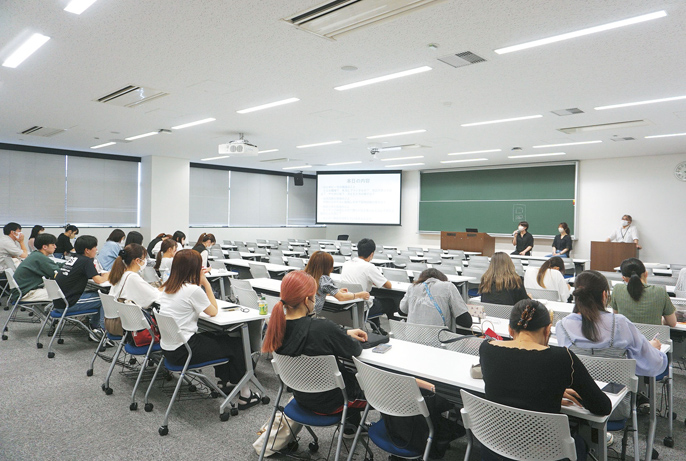
Four-year learning process
Building the foundations of learning in the first year
Through seminars, you will learn the basics of child education.
Examples of subjects in Department of Childhood Education
Fundamentals of Human Sciences, Introduction to Psychology, Introduction to Health Science, Theory of Human Development, Information Processing Seminar A, Information Processing Seminar B, Principles of Childcare, Theory of Childcare Workers, General Theory of Childcare Content, Introduction to Education, Child and Family Welfare, Childcare Psychology I, Fundamentals of Understanding Early Childhood, Child Studies Seminar, Childcare Content (Health), Seminar on Childcare for Children with Disabilities, Children's Health, Children's Creative Expression, Children's Musical Expression I, Children's Food and Nutrition, Introduction to Social Welfare
etc.
Second year: Building a foundation for specialized learning
Through specialized learning foundation classes and exercises in the childcare support room,
Examples of subjects in Department of Childhood Education
Developmental psychology, childcare methodology, interpersonal support methods and behavior, introduction to social welfare, early childhood education curriculum, childcare psychology I, childcare content (human relationships), infant childcare theory, childcare content (environment), infant childcare seminar, basic theory of special needs education, psychology, physiology, and pathology of intellectually disabled children, psychology, physiology, and pathology of physically disabled children, psychology, physiology, and pathology of sick children, general theory of education for intellectually disabled children, childcare content (language), childcare content (expression), childcare consultation support seminar, teaching practice guidance, general theory of education for physically disabled children, general theory of education for sick children, children's musical expression II, teaching practice I
etc.
Third year: In-depth study of specialized subjects
Through teaching and childcare training, students will acquire specialized knowledge and skills by combining theory and practice.
Examples of subjects in Department of Childhood Education
Children's health, Children's relationships, Children's environment, Children's language, Children's expression, Social welfare content seminars, Educational systems and management, Educational consultations (including counseling), Understanding and supporting special educational needs, Children's health and safety, Childcare practice IA, Teaching practice supervision II, Teaching practice II, Childcare practice supervision I, Comprehensive childcare expression, Teaching methods for intellectually disabled children, Teaching methods for physically disabled children, Teaching methods for sick children, General theory of education for visually impaired children, General theory of education for hearing impaired children, Psychology, physiology and pathology of visually impaired children, Psychology, physiology and pathology of hearing impaired children, Childcare practice IB
etc.
*You can select all classes in any course.
4th year: the culmination of 4 years of learning
Students will utilize what they have learned thus far to acquire more advanced expertise and practical skills through exercises and practical training.
Examples of subjects in Department of Childhood Education
Specialized seminars, family support theory, psychology of child and family support, childcare psychologist training, childcare training instruction II, childcare training instruction, childcare training II, childcare training II, childcare and teaching practice seminars (kindergarten), learning disabilities, etc., general theory of education for people with multiple disabilities, special needs school teaching training, training instruction
etc.
Class Pickup
Through repeated experiential learning,
Cultivating the basic skills of childcare workers
Fundamentals of Understanding Young Children | Assistant Professor Yusei Okimoto
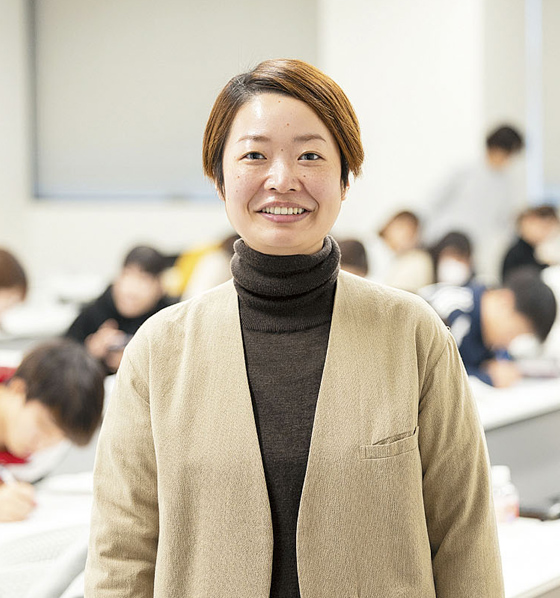
Based on the child studies view of children, which respects children as individuals, this course explains the techniques for observing infants and toddlers, how to gain a solid understanding of children from observation records, and how to provide appropriate developmental support based on that understanding. By observing and participating in actual childcare settings, students will specifically learn desirable ways to interact with children and how to help children build relationships with each other, and develop practical skills. In addition, the course explains childcare cases and the appropriate way to record observations of children, and aims to cultivate a perspective of accepting and understanding children by analyzing the records after observation.
Being supportive and thinking alongside parents
Aiming to become a childcare worker
Childcare Consultation Support Seminar | Associate Professor Keiji Sakaki
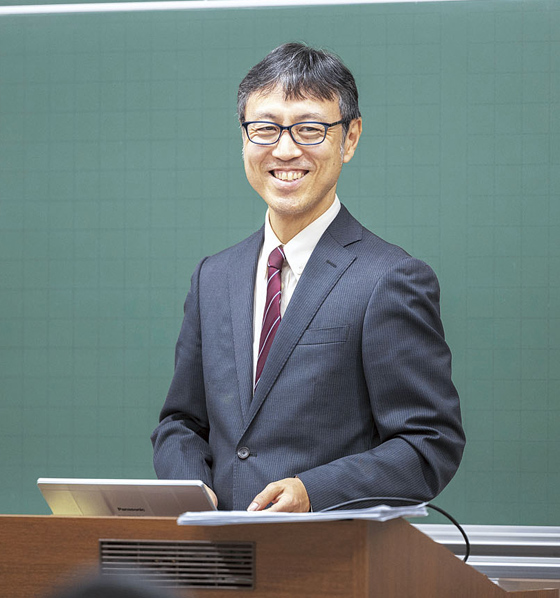
In order to achieve the best interests of children, students will learn about support for children and their guardians who use child welfare facilities such as daycare centers, while drawing on knowledge and methods from psychology and social welfare studies. This class aims to give students a deeper understanding of the appropriate interactions required of childcare workers, including through group discussions on cases involving a variety of children and their guardians.
Seminar Pickup
Abe Takanobu Seminar
Guidance for children with special needs
Support Research
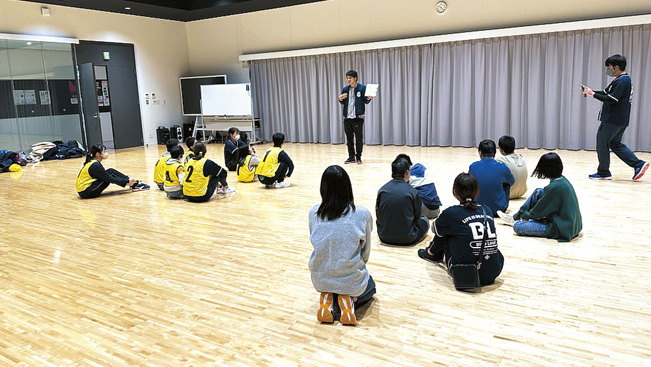
By actually playing and learning with children who require special consideration at daycare centers, kindergartens, elementary schools, and other schools, we will pursue what kind of support and appropriate guidance each child needs, and what reasonable consideration is in the inclusive education system. We also actively engage in exchanges with children with disabilities at special needs schools.
We have fun seminar activities, such as interacting with special needs schools and holding recreational activities with children who attend day care centers after school. The appeal of seminar activities is that they allow you to have interactions that you can't experience in class.
Yuki Mizoguchi, 3rd year
Kyushu Sangyo University Kyushu
High school/Fukuoka
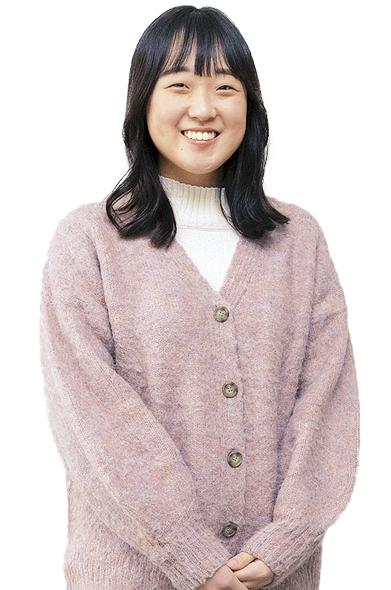
Noriko Mihara Seminar
"I want to see! I want to hear! I want to tell you!"
Considering childcare that fosters children's motivation
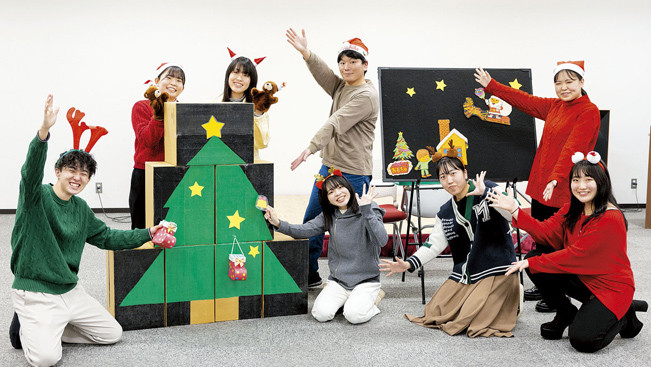
Children become engrossed in things that interest them. When childcare workers use positive language, children's motivation increases. In the Mihara seminar, we consider childcare that fosters children's motivation based on "linguistic expression." We participate in local childcare support as a seminar, and through practical childcare experience in the field, we delve deeper into our own interests and engage in individual research.
I chose this seminar because I was interested in the impact that words have on children and how childcare workers can influence them. In the seminar, each student has their own assignment and works together in a fun environment to tackle the activities.
Madoka Sasaki, 4th year
Genkai High School/Fukuoka
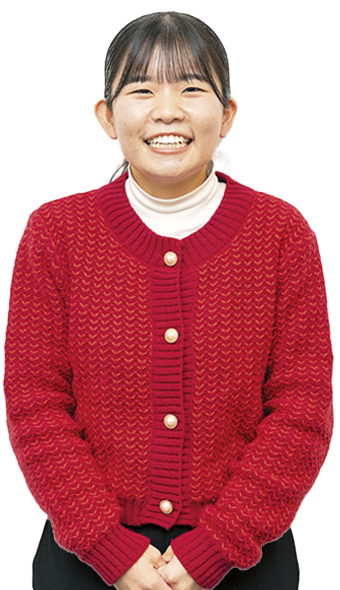
Qualifications and career path data
Qualifications to aim for
- ■ Kindergarten Teacher License
- ■Childcare worker qualifications Special needs school teacher license (intellect, limbs, illness)
- ■ Elementary school teacher license
- ■Associate school psychologist
- ■Social educator (training course) ■Childcare psychologist (class 2)
- ■Qualifications for appointment as a social welfare officer Curator Social educator (training course) etc.
*Our school is authorized to enable students to obtain a first-class special needs school teaching license using a first-class kindergarten teaching license as the basic license. However, for those who wish to work as special needs school teachers in the future, we recommend that they also obtain an elementary school teaching license, taking into account the hiring situation.
Industry Graph

Main Employment Destinations
(Academic) Akebono Gakuen Certified Childcare Center Ono Kindergarten/ (Academic) Dotoku Gakuen Nodayama Kindergarten/ (Social Welfare) Konankai Emile Childcare Center/ (Academic) Izu Gakuen Amaterasu Kindergarten/ (Social Welfare) Seifu-kai Kasumigaoka Nursery School/ (Social Welfare) Kitakyushu City Welfare Foundation/ (Social Welfare) Kujira Fukuoka City Child Psychological Treatment Facility/ Japan Childcare Service Co., Ltd./ (Social Welfare) Rinyu-kai Kashiihama Nursery School/ (Social Welfare) Kitakyushu City Childcare Business Association/ (Social Welfare) Lupinus Matsukadai Nursery School/ Global Kids Co., Ltd./ (Social Welfare) Takeo-kai Arae Nursery School/ (Social Welfare) Mitsuru-kai Shirohama Nursery School/ (Social Welfare) Seikai Island City Cosmos Nursery School/ (Social Welfare) Fukuoka Prefecture Social Welfare Foundation Washiro Seishoen/ (Social Welfare) Shinsei-kai Meinohama Momiji no Mori Nursery School/ Fukuoka Prefecture Elementary School Teachers/ Fukuoka Prefecture Special Needs School Teachers
Graduate Interview
Karen Nagano
Kyushu Sangyo University Kyushu High School/Fukuoka
- Employment
- Social Welfare Corporation Seimon Fukushikai
Semen Kindergarten Nursery Teacher
In Department of Childhood Education, I was able to hear from people who work in various facilities such as kindergartens, nursery schools, and child welfare institutions, which helped me shape my own perspective on childcare. My current goal is to become a childcare worker who can support the healthy upbringing, growth, and development of children.

Misa Sarushima
Genkai High School/Fukuoka
- Employment
- Fukuoka City Special Needs School Teacher
I think it was good that I was able to learn the importance of understanding children from a professional perspective at the undergraduate level. My lifelong goal is to be an "adult who is close to children" by observing their daily behavior and thinking about what kind of future they will lead.

If you cannot view PDF files, please download Adobe Reader.

